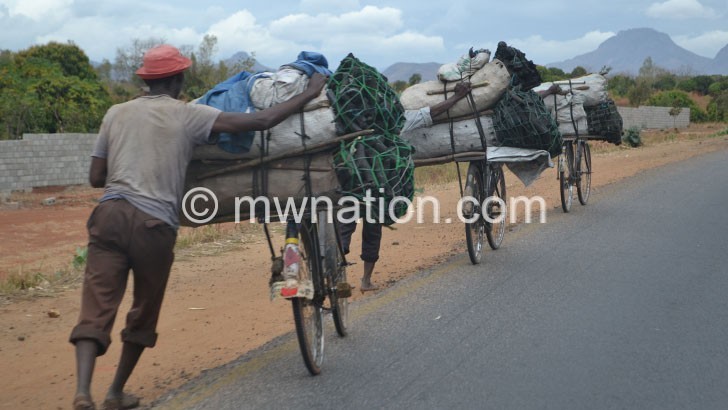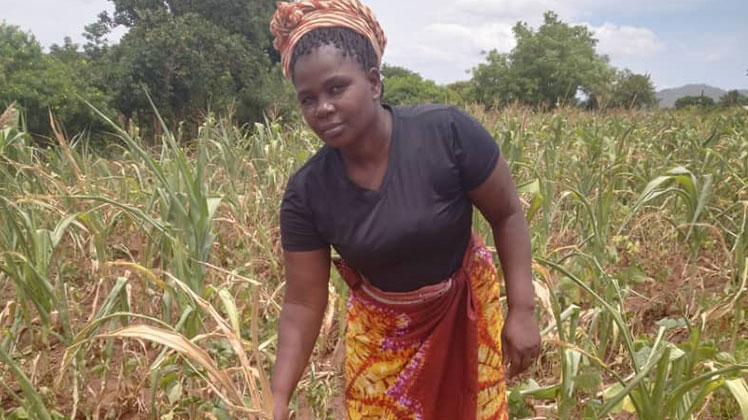Put a stop to Dzalanyama plunder
It is becoming increasingly difficult for most Lilongwe residents to find water running through their taps despite prepaying for it or for those still maintaining postpaid accounts, settling all bills. On the other hand, it is easy to spend days and weeks without a single drop coming out of the taps.
In some cases, one is forced to sleep late or set a midnight alarm to check water availability when everyone is enjoiying their sleep.

Last week some parts of Lilongwe went three days without water and with the rising cholera cases, everyone was panicking. Official communication, according to residents of Lilongwe Water Board (LWB) to explain the cause was not forthcoming.
Gladly, over time, according to one resident Francis Kasamba of Area 36, the water utility body has advanced by setting up a call centre to improve customer relations.
But for one going on a hiking session at Bunda Mountain at 7:08 am, you would notice a number of bicycles carrying illegal charcoal, each carrying a minimum of two bags packed in 50 kg sacks.
As you get to Bunda Campus, one would count up to over 100 bicycles with bags of charcoal and many others loaded with firewood. In that less than 10 kilometres stretch an average of 200 bags had a freeway into the city. This is part of activities causing water shortages.
Kasamba said in an interview: “I tried to find out prices for each bag and I made inquiries. I found that a single bag was going at K19 500, while this double, also popularly known as chi Mbwindi or Shampoo you can get it at K37 500,” he said.
This sounded outrageous when the charcoal sellers gave out those figures to prospective buyers.
Even those not good in mathematics, a simple calculation on a calculator would show that the number of bags making it to the city would fetch K3.9 million, as possible or potential revenue from the 200 bags at a cost of K19 500 each.
Kasamba said this reminded him that this was an activity witnessed in 30 minutes yet there were charcoal smugglers moving freely on the roads of Malawi.
An environmental scientist Innocent Sandram, who is a member of Movement for Environmental Action, said in an interview it was unfortunate the plunder was happening despite having in place policy instruments fundamental to the planning, protection and management of the forest resources, including the National Charcoal Strategy (2017), National Forests Landscape Restoration Strategy (2017) and the Forestry Amendment Act (2020).
It appears efforts to disrupt the plunder of the forests including Dzalanyama, according to Sandram, continues to face systematic challenges including corruption and poor coordination.
While at national level enforcement related crimes improved from 65 between 2016 and 2019 to 324 in 2021 and average fines levied for forestry related crimes jumped from K62 000 between 2016 and 2019 to K283 000 in 2021 according to the Department of Forest, more still needs to be done.
At a recent tree planting event held in Dzalanyama Forest Reserve president over by Secretary to the President and Cabnet (SPC) Colleen Zamba, chairperson of the recently constituted Dzalanyama Catchment Trust (DCCT) Leanoard Sefu highlighted lack of funding as one the major setbacks preventing them to implement programmes with communities in protecting the reserve. “The trust has been established without seed money to enable it to hit the ground running. At a similar function last year (2022), former SPC when briefed at the DCCT Pavilion, directed the former secretary for Natural Resources and Climate Change to submit a budget for his consideration. Although it was drafted by DCCT and submitted through the appropriate channel, there has been no response to date,” he Sefu.





